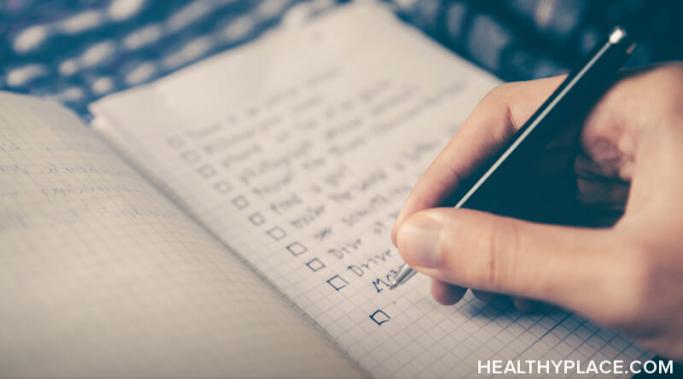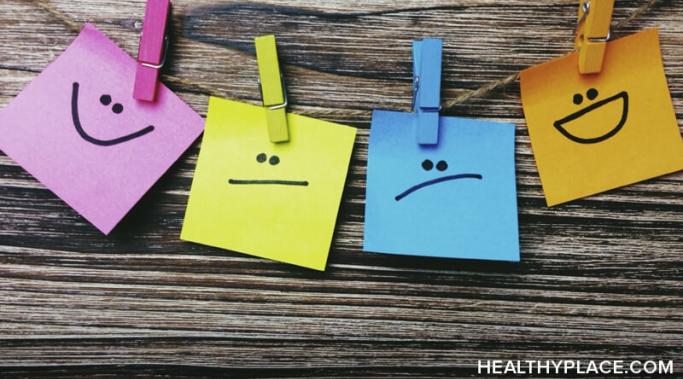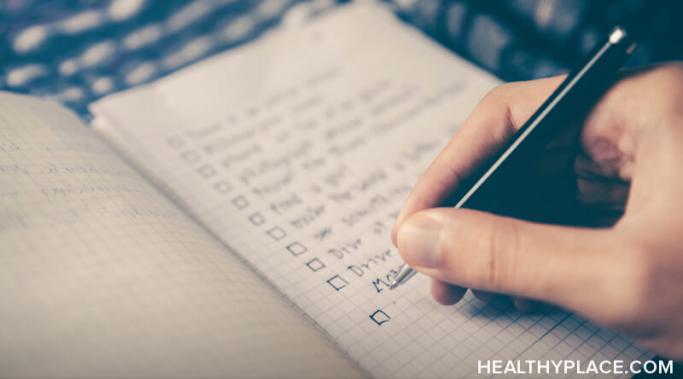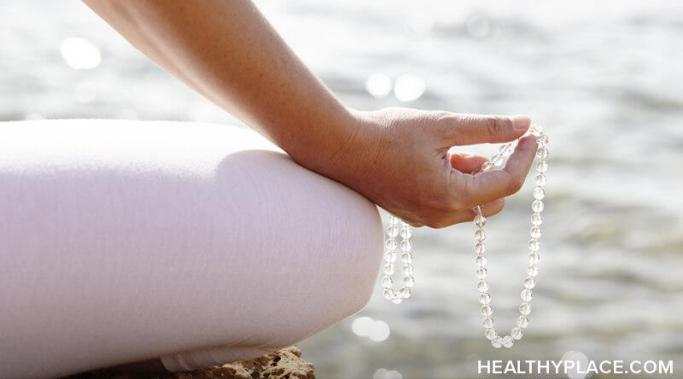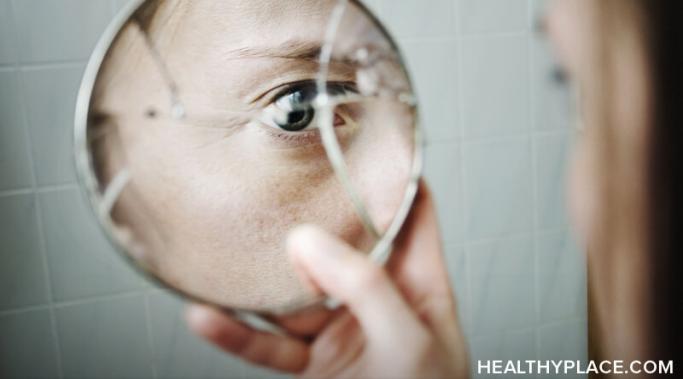The bullet journal is one of the best planners for people living with a mental illness, and I'll tell you why. Organization can be an incredibly important part of mental health recovery, and one of the best organizational systems for those of us with mental illness is the bullet journal. Basically, a bullet journal is a planner you create yourself using a blank notebook. This system allows for all kinds of organizational techniques, from the most colorful creativity to the most bare-bones minimalism.
Self-Improvement - Recovering from Mental Illness
Having a baby affected my mental health recovery. I knew when my daughter was born three years ago that my life would never be the same. I had lots of support, but I still wasn't sure how having a baby would affect my recovery from schizoaffective disorder.
You'll never know what you're truly capable of until you take risks and push yourself. This applies to everyone -- with or without a mental illness.
Is your habitual thinking helpful or unhelpful to your mental health recovery? Today, my therapist completely changed my approach to recovery, and even more importantly, she changed how I see myself and my decisions. With one simple question, she encouraged me to be more compassionate toward myself than I have been in years. I was explaining to her how I tend to get stuck in my mind whenever I feel I've failed or messed up because I sit and think about what I've done wrong, why, and why that makes me a terrible person. She asked, "Okay, but how does that help you?"
A few months ago I underwent eye muscle surgery to better align my eyes. This is a problem I have struggled with since birth, so it really gave my confidence a boost to look in the mirror and see straight eyes. The surgery was elective and something I really had to ask for.
My husband and I are standing in the kitchen of our new house, picking out paint colors and deciding which projects to tackle first, when suddenly I think "It doesn't matter, I won't be there to enjoy it. I'm going to end up killing myself eventually." I don't mean to think this. I don't want to think this. Luckily, I've had experience with these intrusive suicidal thoughts before, and I'm able to stay calm. I know that I don't want to die, I'm just experiencing a lot of change and my brain is seeking out the comfort of its old neural pathways.
I noticed some time ago that I've been choosing to stay sick because it's the devil I know. I've been dealing with mental health problems for nearly half a decade, but it's only in the last year that I've finally started making real progress toward recovery. This is because I finally admitted to myself that I was choosing to stay sick because it was what I knew how to do. Recovery was going to involve a lot of truth and change that I wasn't prepared to face, so I just didn't.
Mala beads may not help everyone, and, for me, dealing with my mental illness means medications come first. However, being open to learning additional methods to improve your life and functioning is also important. When you discover new and healthy ways to cope, go with it. Everyone is different, so use what works for you. I recently saw a post on Facebook about mala beads. I was intrigued and bought a necklace. I was excited when they arrived, and even though meditation had been difficult for me in the past, I was definitely willing to give it a try with my new mala beads.
I've resisted recovery for all kinds of reasons, including because I was sick of trying to be perfect. I spent most of my adolescence trying not to be like other teenagers, not to go through "phases" or be bad. I tried so hard to do things "right." When mental illness appeared in my life, I could barely do things at all, let alone do them "right," so I got angry.
Most of us resist mental health recovery at some point because mental illness has become our identity. Who will we be without mental illness? This series of posts will address some different reasons for resistance, starting with a personal battle of mine: staying sick because it has become my identity.
